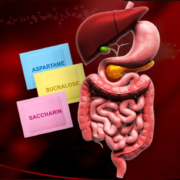COVID-19 and the Small Intestine
With the ACE2 receptor implicated in the long-term side effects of COVID-19, let’s begin with the digestive system. The gastrointestinal distress such as cramping, pain, and diarrhea are obvious, but there are reports that some people have had to have their entire small intestine removed due to damage from the COVID-19 virus. How could that happen?
One of the characteristics of these specific cells that contain the ACE2 receptor is that they function to absorb nutrients. If the virus interferes with absorption of nutrients by cells, the first cells that will be impacted are in the small intestine; it could literally starve to death. Second, a significant blood supply goes to the digestive system. We know that the COVID-19 infection can cause unusual clotting; if the blood flow is restricted to the small intestine, that could also cause cell death.
While we’re not done with this topic yet, I think it should be clear that we don’t know as much as we need to about the long-term effects of COVID-19. That’s why it’s so important for research to continue and for all of us to be vigilant in protecting our own health and the health of everyone we encounter.
Because of the holiday weekend, we’ll complete this tomorrow, but the discussion is far from being over as more research reveals more issues from exposure to this virus.
What are you prepared to do today?
Dr. Chet
References: www.rndsystems.com/resources/articles/ace-2-sars-receptor-identified









